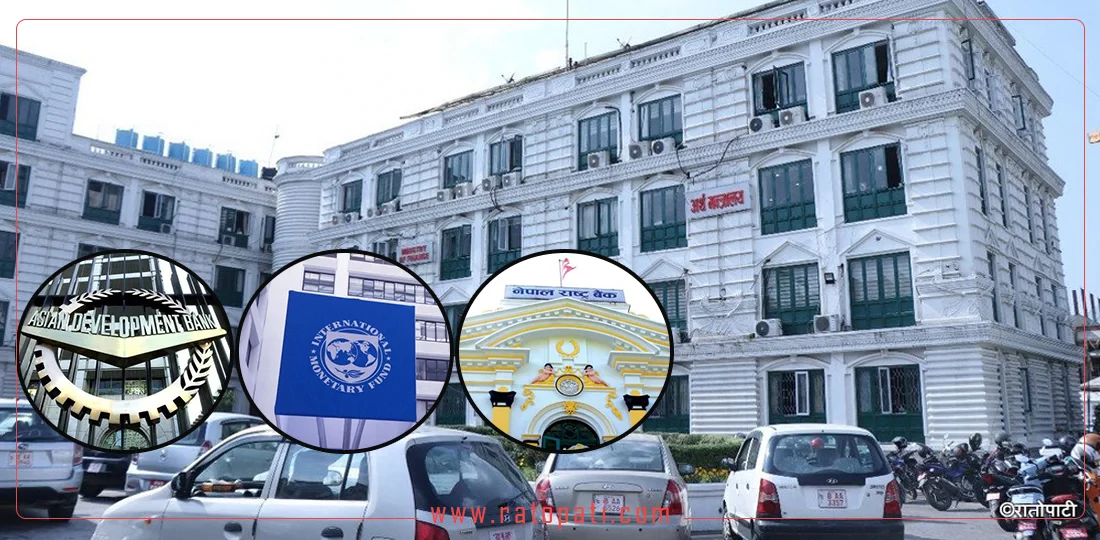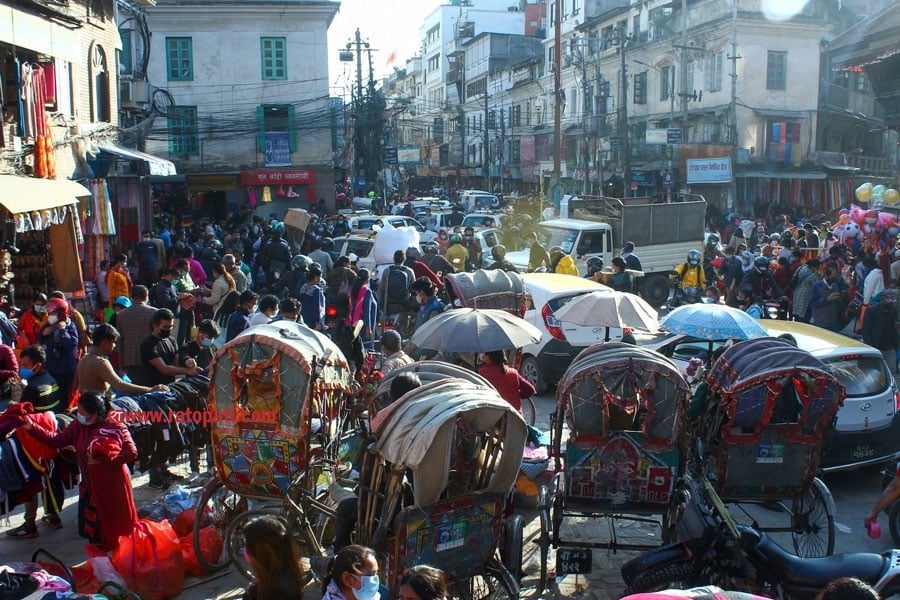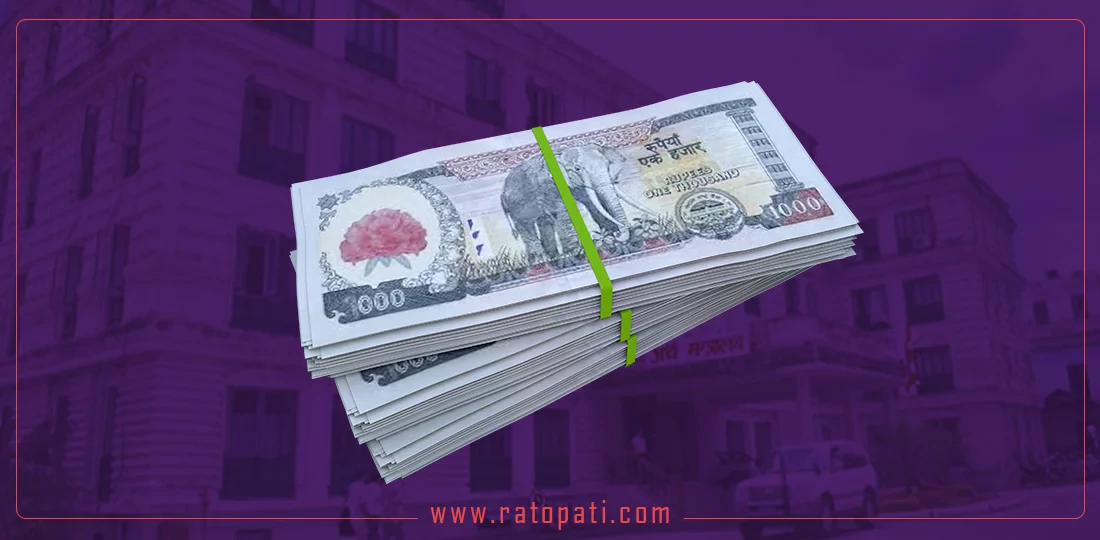Improvement in economy noted, yet key metrics still negative

Kathmandu, September 27 — In a span of two days, two major donor agencies, the International Monetary Fund (IMF) and the Asian Development Bank (ADB), have released reports indicating that Nepal's economy is showing signs of improvement.
The ADB's statement released on Wednesday highlighted improvements in agricultural production, tourist arrivals, and electricity generation, which are expected to positively impact the economy. Arnaud Cauchois, ADB's Country Director for Nepal, mentioned that increases in internal revenue, intensified infrastructure spending, and the revival of tourism-related services will boost Gross Domestic Product (GDP).
With the timely completion of paddy planting alongside normal monsoon conditions, improvements in the agricultural sector are anticipated. He also noted that increased electricity production capacity will support industrial growth.
As the ADB noted, Nepal currently has an ample supply of electricity. Over 800 megawatts are being exported to India daily, meeting domestic demand. This fiscal year, approximately 1,100 megawatts will be connected to the national transmission line.
Overall, this is expected to facilitate economic activities, with the ADB projecting further improvement in Nepal's economy for the current fiscal year 2024/25, estimating a growth rate of 4.9%. In 2023, the economic growth was only 2%. For 2024, the ADB forecasts a growth rate of 3.6%.
The ADB also predicts that inflation will remain within 5.4% in 2024, down from 7.7% in 2023. It expects a slight increase in inflation to 5.5% in 2025.
Prior to this, from September 11 to September 22, representatives from the IMF visited Nepal. Their statement indicated signs of economic improvement as well, noting that Nepal has adequate foreign reserves, increased remittance inflows, controlled price increases, and rising tourist arrivals.

As major donor agencies involved in formulating Nepal's economic policy, both the IMF and ADB have identified improvements in certain areas of the economy. Tourist arrivals in Nepal have been high post-COVID. In the first eight months of 2024, 720,000 tourists visited Nepal, compared to 601,000 in the same period last year.
Remittances have also seen significant growth. According to Nepal Rastra Bank, remittances amounted to NPR 137 billion in July of the current fiscal year, up from NPR 116 billion in the same month last year.
In the first month of the current fiscal year, foreign exchange reserves have also increased. As of mid-August, reserves reached USD 15.58 billion, compared to USD 15.27 billion at the end of the last fiscal year, marking a 2% increase in just one month. This amount is sufficient to cover more than 13 months of imports.
Another area where donor agencies have indicated signs of improvement is inflation. Upto mid-August of the current fiscal year, consumer price inflation was limited to 4.10%, down from 7.52% in the same period last year. The current account and remittance positions are also in surplus. As of mid-August, the current account showed a surplus of NPR 30.89 billion, compared to a surplus of NPR 13.37 billion in the same period last year. Similarly, the net transfer position is in surplus by NPR 40.90 billion, up from NPR 36.43 billion last year.
Problems in government fiscal management
Despite signs of improvement in some areas of the economy, many indicators remain negative. Although the festival season is approaching, businesses have not taken out loans. Due to sufficient liquidity in banks, interest rates have decreased. The trade deficit remains high, and revenue collection and government spending have not met targets.

According to the Customs Department, in the first two months of the current fiscal year, the country experienced a trade deficit of NPR 237.45 billion. Exports decreased by 5%. The Financial Comptroller General Office reported that revenue collection in first two months of current fiscal year was only 11.46% of the target.
Although imports are expected to rise during the festival season, the government has not been able to meet revenue collection targets during this period. In the first two months, there were no foreign grants received. The government has set a target to obtain NPR 52.32 billion in grants this fiscal year. Government spending has also fallen short of expectations, with only 7.51% of total expenditure utilized in first two months.
Therefore, while there are some signs of improvement in the Nepali economy, economists comment that these improvements are not yet sustainable.
Economist Dr. Dilliraj Khanal states that due to problems in government financial management, it cannot be claimed that the economy has improved. "The government has not been able to meet revenue collection and expenditure targets. This working style does not indicate that it will be achieved," he said, adding that investable funds are stagnating in banks. Thus, while some sectors may seem improved, the economy is still facing issues.
Experts attribute the lack of market demand and revenue collection targets to smuggling, which they believe is a major cause of revenue leakage. Businessmen have reported that smuggled goods have made it difficult for legitimate products to compete in the market.
Rajesh Agrawal, president of the Confederation of Nepalese Industries, commented that, "Due to smuggling, not only has the government faced a revenue deficit, but also, due to lack of demand, businesses are unable to invest."
Following complaints about smuggling, the government has formed teams to control it. Soon after the new government was formed, Finance Minister Bishnu Poudel announced the formation of teams to increase revenue and control smuggling. The results of this monitoring and subsequent actions remain to be seen.
Despite various problems in the economy, economist Dr. Achyut Wagle believes that some improvements are attributed to the festival season. "The government has not made significant policy changes to indicate improvement," he said, "For years, our economy has been in a very poor state, and only a slight improvement has occurred, partly due to the festivals." He emphasized that the economy is not on a path to strong recovery.
Economists agree that until domestic production increases, the service sector improves, and investor confidence strengthens, it cannot be claimed that the economy has truly improved. They suggest that internal production should increase, and sources of foreign currency should not rely solely on remittances. Dr. Khanal emphasized that the government needs to control current expenditures and increase development spending.









Leave Comment